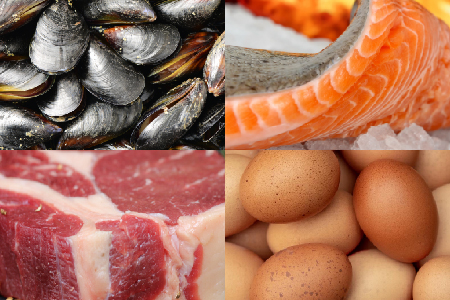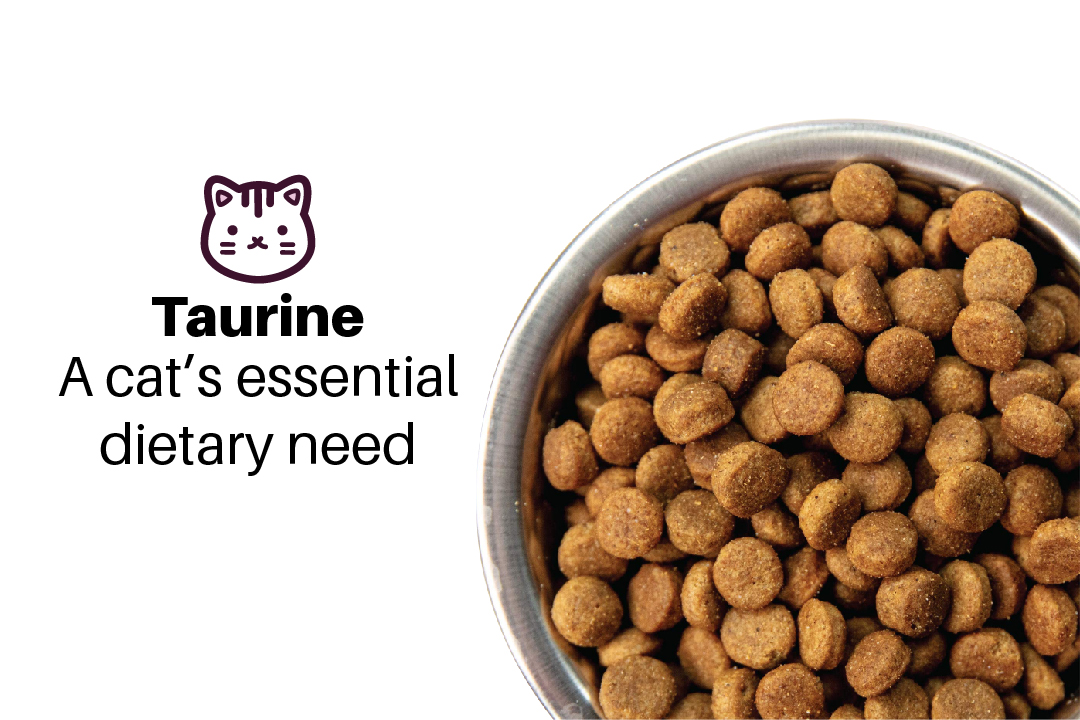As pet owners, we are always looking out for the best products for our furry kids. This includes scanning through the list of ingredients printed on our pet’s bag of food to get an idea of what will be going into their system. So, if you are a cat owner who occasionally reads the ingredient list, you’ve probably noticed that taurine is always listed in cat food products on the market.
But if you are not quite familiar with the term taurine, it is basically an amino acid that plays an important role in bodily functions. It is an essential part of a cat’s diet simply because cats are not able to synthesize taurine readily like other mammals. Therefore, it is crucial that they receive adequate amounts of taurine in their diet to support their overall health.
Taurine is important and beneficial for many reasons: vision, digestion, pregnancy and fetal development, and for strong immune system and heart muscle function. In short, deficiency of taurine can result in severe health repercussions.
Cause And Effects Of Taurine Deficiency
Inadequate taurine intake in a cat’s diet is what usually results in a taurine deficiency. Hence, manufacturers of commercial cat food have been formulating cat food products with adequate amounts of taurine to ensure that sufficient intake of taurine can be met in our felines.
But if you are feeding your cats home-cooked meals that are not high in taurine, or when their meat-based diets are replaced with a vegan or vegetarian one, then your cat is at risk for taurine deficiency. Other factors to consider also is that your cat may not be eating enough food to support its daily taurine requirements, or that it may be suffering from medical conditions that caused a decrease in absorption of taurine.
Generally, if your cat is not getting enough taurine, you will likely notice them exhibiting signs and symptoms listed below:
- Dilated Cardiomyopathy (Weak and enlarged heart muscles)
- Retinal Degeneration (Progressive cell death in eyes)
- Reproductive Issues
- Developmental Abnormalities
- Digestive Problems
- Immune system disorders
Taking prompt action to correct a taurine deficiency may possibly reverse the unfavourable effects mentioned above. But unfortunately, when it involves the heart and vision, it is usually irreparable. Therefore, it is important that we prevent deficiencies from the start by ensuring that our felines are receiving the right amount of taurine in their diet on a regular basis.
How To Treat A Taurine Deficiency
If your cat has been diagnosed by your veterinarian as suffering from taurine deficiency, either from lack of proper intake from their diet or from certain diseases, taurine supplements and/or a dietary change are the typical choice of treatment. In some cats, they may need to take supplements for the rest of their lives.
Fortunately, taurine supplements can be easily purchased over-the-counter or from your nearest veterinary clinic. They come in several forms: tablets, powder, and liquids. These non-prescriptive, over-the-counter supplements are best given for prevention purposes. But if your cat is suffering from taurine deficiency, it is recommended that you consult with your veterinarian for the best treatment plan that is able to properly treat taurine deficiency.
Is Additional Taurine Necessary?
This will highly depend on your cat’s overall health. Healthy cats with no health issues that are provided with high-quality cat foods will not need to be supplemented with additional taurine. Adding additional sources of taurine in a cat’s diet will only be necessary for instances where your cat is not receiving enough taurine in its diet, or if it is diagnosed with health issues such as heart conditions, which will highly benefit from taurine. Nevertheless, taurine has been recognized to be very safe and there are no reports of issues with toxicity in cats from an excess of taurine.
Natural Sources For Taurine

Fresh shellfish, fish, meat, and eggs are good sources of natural taurine for cats
If home-prepared meals are something you are currently providing your cat with due to personal preference or health-related reasons, then making sure that you are adding sufficient amounts of taurine in their diet is crucial. Instead of giving them store-bought taurine supplements, you can opt for natural food sources that also provide the necessary taurine needed for your cats:
- Shellfish
- Fish
- Meat
- Eggs
Of course, consulting with your trusted veterinarian for advice is your best bet since they can help you come up with a proper meal plan to ensure that your cat’s nutritional needs are met.
Ultimately, regular veterinary visits are highly recommended as they can help you catch and prevent further negative impacts of taurine deficiencies, and/or even other emerging illnesses, in your cat. Therefore, it is advisable that you bring your furry friends in for regular veterinary visits at least once a year. This way, you’ll always be on top of your pet’s health conditions!

